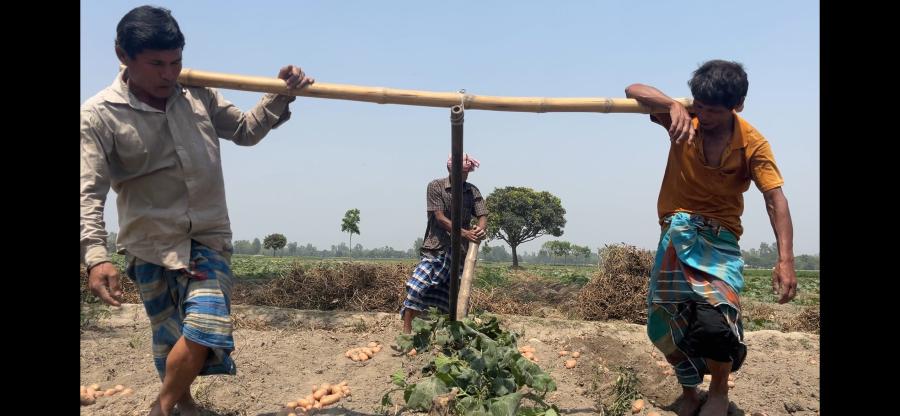Officials of Western governments and international donor agencies such as the United Nations Development Programme and the World Bank will gather in Dhaka next month for the Bangladesh Development Forum. As they forge, and weigh, past and potential commitments to the country, the Peace Campaign Group hopes to draw their attention to the dire situation of the Jumma, the indigenous people of the Chittagong Hill Tracts in southeastern Bangladesh.
The Peace Campaign Group, based in New Delhi, India, has been working to promote and protect human rights and peace in the Chittagong Hill Tracts for several years. The PCG will present a paper at the Forum outlining some of key concerns of the Jumma, who have been the victims of over 20 years of armed conflict in their homeland. The fighting has ceased, with the advent of the Chittagong Hill Tracts Peace Accord signed in 1997 between the government of Bangladesh and the Jana Samhati Samiti (JSS), the political body representing the Jumma peoples. But inequality and deprivation continue for the Jumma, due to the improper implementation of the accord on the part of the government.
The PCG notes that “experience gained over the last five years or so indicates that the Government has no political commitment to implement the accord.” The list of the core points of the accord that remain unimplemented is long, including:
- the settlement of land disputes between Jummas and Bengali Muslim settlers
- rehabilitation of Jumma refugees and internally displaced Jummas
- withdrawal and resettlement of Bengali Muslim settlers outside the CHT region
- withdrawal of ‘temporary’ military and paramilitary camps from the CHT
- and effective enforcement of the CHT Regional Council and the three Hill District Council Acts o f 1998.
The PCG contends that any development planning in the CHT region must take into account the continuing dispossession and disenfranchisement of the Jumma peoples. It accuses the government of flouting the Peace Accord and international conventions on the rights of indigenous peoples and minorities.
In its paper, the PCG notes, “International development partners should address this issue very seriously. They should provide aid to the Government of Bangladesh on the condition of its compliance with the CHT Peace Accord and other international conventions on indigenous peoples and minorities.”
“The Jumma indigenous people should be given the right to design, implement and evaluate their own development policies and programs according to their needs, aspirations and cultural values,” the PCG argues. And it is by no means alone in making this claim: a long list of human and indigenous rights organizations, communities and institutions signed on to a resolution calling for proper implementation of the CHT Peace Accord adopted by the Indigenous Peoples’ International Summit on Sustainable Development in August of 2002. With some added political and economic pressure from those institutions claiming to have the best interests of the people of Bangladesh at heart, a brighter future for the indigenous residents of the Chittagong Hill Tracts just might become a reality.


